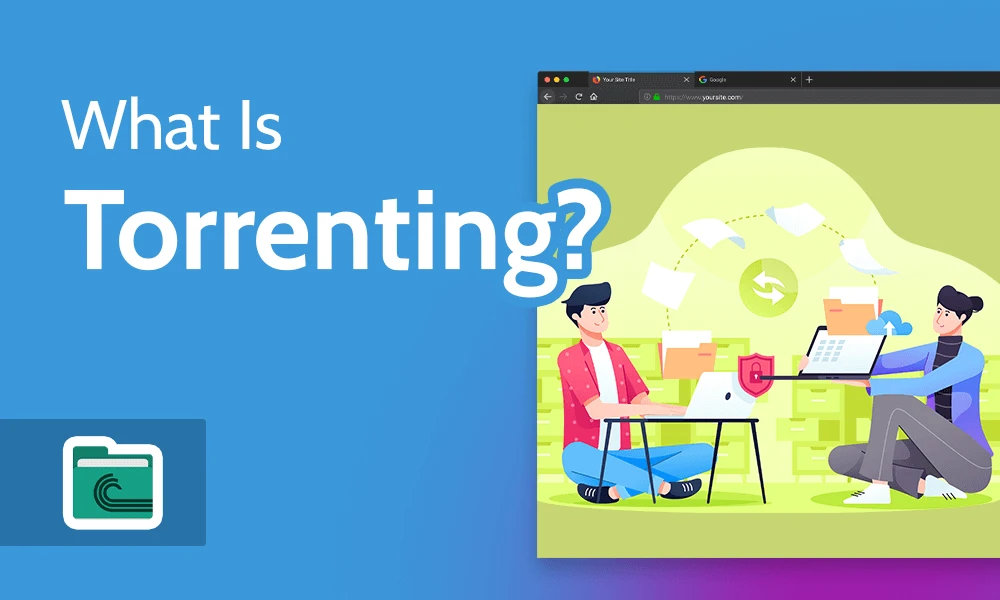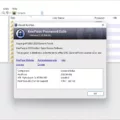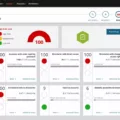Torrenting can be a great way to download large files quickly without taking up too much of your bandwidth. But if you don’t protect yourself, you could be in for a world of trouble. To help keep yourself safe and secure when torrenting, here are some tips on how to torrent safely and legally.
1. Use a Good VPN: A Virtual Private Network (VPN) is the best way to protect yourself when downloading files from the web. It encrypts all your internet traffic and ensures that your IP address remains hidden from prying eyes. This means that your ISP won’t be able to track what you’re doing online and won’t be able to throttle your speeds or block access to certain websites. It also prevents copyright holders from tracking you and sending out threatening letters.
2. Choose the Right Torrent Site: Not all torrent sites are created equal, so it’s important to pick one that offers high-quality, reliable downloads that are also legal. Public torrent sites like The Pirate Bay and RARBG are popular choices, as they offer plenty of content and have been around for years without any major issues. However, if you want securely encrypted downloads with faster speeds, private torrent sites like PassThePopcorn or What. cd might be a better option for you.
3. Choose the Right Torrent Client: The torrent client is the program you use to download files from the web – it handles all the file transfers and manages where each file will go after it has been downloaded from the web server. Popular choices include uTorrent, BitTorrent, Vuze, Deluge, qBittorrent, and Transmission – each has its own pros and cons so make sure you do some research before deciding which one is right for you.
4. Choose the Right Torrents: Once you’ve chosen a good torrent client and site, it’s time to start downloading! Make sure you choose only legal content – this usually means checking reviews or comments about each file before downloading them as some may contain malicious software or malware that could harm your computer or put your data at risk of being stolen by hackers.
5. Get Good Antivirus Software: To protect yourself while torrenting it’s important that you install good antivirus software on your computer – this will scan each file before they are opened on your computer making sure they are safe and clean of any malicious software or viruses before they can do any harm. Popular antivirus programs include AVG Free Antivirus, Avast Free Antivirus, and Microsoft Security Essentials – make sure whichever program you choose is updated regularly as new threats emerge every day!
6 Avoid ISP Throttling: ISPs often throttle connection speeds for users who download large amounts of data as this can slow down their networks for other users trying to access websites or stream videos online – but luckily there are ways to get around this! Using a VPN will help hide what kind of traffic is running through your network so that ISPs won’t be able to detect whether or not its file transfers taking up their bandwidth which should stop them from throttling your connection speeds in the future when downloading large files via torrents!
7 Access Restricted Content: Many countries have restrictions on what kind of content can be accessed online so if there’s something specific that isn’t available in your area then using a VPN will allow you to connect to remote servers located in other countries where these restrictions don’t apply – allowing access to more content than would otherwise be available!
8 Keep Your IP Address Safe: Your IP address is like an online identity card – anyone who knows it can track down where exactly on the internet you’re located which makes it important not only when using public Wi-Fi networks but also when downloading files via torrents as copyright holders can use this information against those found pirating copyrighted material – using a VPN will keep these people in the dark about where exactly on earth you’re located!
Torrenting can be an incredibly useful tool but only if done safely – following these steps should help ensure that whatever content is being downloaded remains secure while staying within legal limits at all times!

Is Torrenting Legal or Illegal?
Torrenting is a type of file-sharing technique that allows users to access and distribute files over the internet. While the technology itself is perfectly legal, it can be used to share copyrighted material without permission, meaning that downloading or sharing such content may be illegal.
It is important to note that the legality of torrenting depends on what you are downloading or sharing. It is normally acceptable to use torrents to download or share open-source software, public domain content, and other freely available material. However, if you are downloading copyrighted content without permission from the copyright holder, then you may be subject to prosecution. Similarly, if you are sharing copyrighted material without permission from the copyright holder (even if you did not originally download it yourself), then this can also be illegal.
In some cases, even downloading or sharing material that appears completely legal can still result in criminal penalties for copyright infringement in certain countries. This means that it is important for users to always research the legality of their downloads before proceeding with them.
Is Torrenting Safe Without a VPN?
Torrenting without a VPN is not completely safe. Even though torrenting does not involve storing files on the same server, it still involves sharing files with other users over an open network. This makes it possible for your IP address to be exposed to malicious users who may be able to access your personal information or track your online activity. Additionally, the risk of downloading copyrighted material and malware is higher when torrenting without a VPN. Therefore, it is best to use a VPN when downloading from torrents, as this will protect your identity and data from hackers and malicious users.
Torrenting for Beginners: A Guide
Torrenting is a great way to download large files quickly, but it can also be a bit daunting for beginners. To get started, you’ll need to download a torrent client like uTorrent or BitTorrent. Once that’s done, you can search for the files you want to download using a torrent searches engine such as The Pirate Bay or Kickass Torrents. When you find the file you want, simply click on it and your torrent client will start downloading it. You can also choose to share the file yourself by seeding it after the download is complete.
To maximize your safety while torrenting, it’s important to use a good VPN service in order to protect your privacy and keep your IP address hidden. This will ensure that any data sent over the internet is encrypted and secure from prying eyes. Additionally, make sure that you have reliable antivirus software installed in order to protect yourself from malicious software that may be included in some downloads.
Finally, remember that some content may be restricted due to copyright laws and other legal issues, so make sure you understand your local laws before downloading anything illegal. With these tips in mind, happy torrenting!
Which VPN is Best for Torrenting?
NordVPN is generally considered to be the best VPN for torrenting. It offers a high level of security and privacy, with strong encryption and a no-logs policy. NordVPN also has a large network of 5,400+ servers in 59 countries that provides fast download speeds for P2P sharing. It also has dedicated P2P servers optimized for torrenting, as well as an automatic kill switch, DNS leak protection, and obfuscation technology that hides your traffic from your ISP. Moreover, NordVPN is very user-friendly and comes with a 30-day money-back guarantee. All these features make NordVPN an ideal choice for anyone looking to stay secure while downloading torrents.
Consequences of Being Caught Torrenting
If you are caught torrenting copyrighted material, the consequences can vary depending on your country and the type of material you have downloaded. In some countries, you could face fines or even jail time for copyright infringement. In other countries, your ISP may simply suspend or cancel your internet service. Additionally, some copyright holders may choose to sue you in civil court for damages.
To avoid these consequences, it is important to always download copyrighted material legally and use a secure VPN when torrenting. Additionally, be sure to read up on the laws in your country to ensure that you are not breaking any of them when torrenting.
Can I Avoid Being Caught Torrenting With a VPN?
Yes, it is possible to get caught torrenting with a VPN, but it is unlikely. A Virtual Private Network (VPN) is a tool that provides privacy and anonymity while you are online. It works by routing your web traffic through an encrypted tunnel, which masks your IP address and other identifying information from third parties like your internet service provider or the copyright holders of the content you are downloading. This makes it nearly impossible for them to trace the source of the traffic back to you.
However, there are some scenarios in which you could still get caught torrenting with a VPN. For instance, if the VPN does not have an effective “kill switch” feature, your IP address may still be visible to outside parties if the connection drops temporarily. Additionally, some VPNs keep their own logs of user activity, so they could theoretically trace any torrenting activity to you even if they don’t have access to your IP address. Lastly, copyright holders may be able to detect patterns in your online behavior and use that as grounds for legal action against you.
Overall, using a VPN is still one of the best ways to protect yourself when torrenting online. Just make sure that you choose a reliable provider with strong encryption protocols and an effective kill switch feature for added security.
The Benefits of Hiding Your IP When Torrenting
Yes, it is highly recommended to hide your IP address when torrenting. By hiding your IP address, you can protect your identity and minimize the risk of being tracked by your Internet Service Provider (ISP), copyright trolls, and other third parties.
When you download a torrent file, your IP address is added to a torrent swarm that consists of everyone who is sharing the same file. This makes it possible for anyone in the swarm to view your IP address. If you don’t want to be identified or targeted by copyright trolls or other malicious entities, it’s essential that you hide your IP address while downloading torrents.
Hiding your IP address can be done by using a VPN (Virtual Private Network). A VPN allows you to connect to an encrypted server located in another country and mask your true IP address with an alternate one from the server’s location. This will make it impossible for people in the swarm to track or identify you based on your real location or IP address.
In addition to hiding your IP address, using a VPN also provides the added benefit of encrypting all of your data transfers from prying eyes. This means that any information sent through the VPN connection will remain private and secure even if intercepted by a third party.
All in all, using a VPN is an effective way to protect yourself while torrenting as it helps keep your identity anonymous and prevents others from monitoring or tracking you online.
Hiding Torrenting with a VPN
A VPN hides your torrenting activity by encrypting your internet connection and routing it through an intermediary server. This makes it impossible for your Internet Service Provider (ISP) or any other third parties on your network from seeing what you are downloading. The encryption protects your data from being intercepted, monitored, and logged while you are torrenting.
When using a VPN, all of the traffic coming to and from your device is encrypted, making it difficult for anyone to determine which websites you visit or which files you download. The server acts as an intermediary between you and the websites you visit, hiding your true IP address and adding an extra layer of security to your browsing activities. This is especially useful when torrenting, as it helps prevent copyright infringement notices or other unwanted consequences.
Avoiding Detection While Torrenting
The best way to torrent without getting caught is to use a reliable and trusted VPN. A VPN works by routing your data through a secure connection and encrypting it so that it appears anonymous to other users. This makes it much harder for third parties to track your activity and gain access to your personal data. Additionally, make sure you’re downloading from reputable sources, avoid any torrents that have suspicious or malicious content, and stay aware of the latest security updates for your torrenting software.
Determining the Safety of a Torrent
To know if a torrent is safe, you need to pay attention to a few key signs. Firstly, check the comments and reviews of the torrent before you download it. If the torrent has lots of positive reviews and comments, then it may be safe. Secondly, make sure the torrent has enough seeders (people sharing the file) to provide a reliable download. Ideally, there should be at least 20-30 seeders for a reliable download. Thirdly, install a good antivirus program on your computer before downloading any files from the internet. Lastly, consider using a VPN (Virtual Private Network) when you are downloading from torrents. A VPN will help keep your IP address private and secure while you are downloading from a server.
Conclusion
To ensure a safe and secure torrenting experience, it is important to use a good VPN, and choose the right torrent site, the right torrent client, and the right torrents. Get good antivirus software and avoid ISP throttling in order to access restricted content. Also, keep your IP address safe by using the Tor browser or other privacy tools. By taking these steps to protect yourself while torrenting, you can enjoy downloading files without worrying about legal consequences or compromising your privacy.







